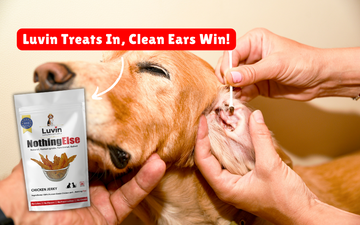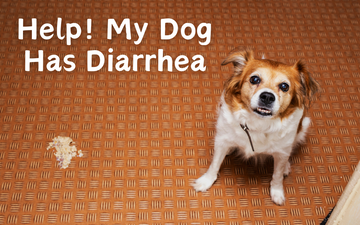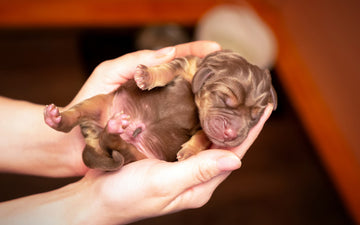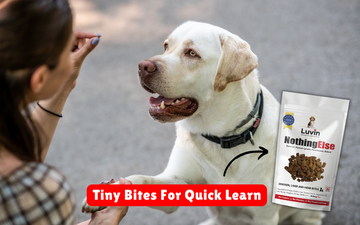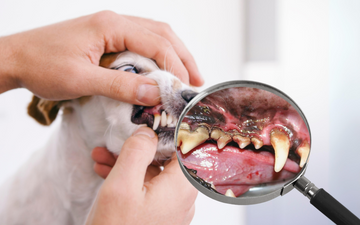
You put a lot of love and effort into keeping your dog healthy: top-notch food, regular vet check-ups, and plenty of playtime. But what about their pearly whites? Yes, dental health is often the unsung hero in your dog's overall well-being. When your furry friend has a toothache or sore gums, they're dealing with pain and stress you might not even notice. That's why it's crucial to show some love to those canine chompers.
Why is it important?
The first thing that concerns every pet parent is when their furry friend refuses to eat and you actively start finding the reasons, dental problems can turn the simple act of chewing into a painful ordeal for your dog, leading them to avoid food altogether or prefer wet food over dry.
Your dog expresses their love by pounding on you and licking your face, you sense a very strong, unbearable breath withdrawing yourself from them this is a very strong indicator of bad dental health indicating it is time to do something.
Check if their gums are red, swollen, or bleeding, especially in the molars, which are signs of dental problems.
What starts in the mouth ends in the kidneys, confused? The presence of harmful bacteria in the mouth can cause severe infection and release of toxins which can then enter the bloodstream. This infiltration of toxins into the bloodstream poses a significant risk, potentially causing chronic kidney disease. When the immune system is weakened by kidney disease and dysfunction, it can also affect the heart and liver.
To avoid looking behind this door of so many dental problems, choose a balanced diet that is essential for overall health, including dental health. Ensure your dog's food provides the right nutrients without excessive sugars or empty calories that can contribute to plaque formation.
Taking care of your pup's dental health doesn't require a bunch of fancy gadgets. Here's what you'll need:
Doggie Toothbrush: You can use a regular human toothbrush, just make sure it's soft. There are also toothbrushes designed specifically for dogs, with angles that work well for their mouths. Fingertip-style brushes that slip over your finger are another option.
Canine Toothpaste: Dogs don't get the concept of "spit it out," so go for a toothpaste that's safe for them to swallow. Human toothpaste is not right for them as it may contain fluoride which is not good for them while others may contain xylitol (artificial sweetener), which is toxic for dogs.
Dental Treats: Dental treats are a fantastic way to boost your pup's oral health. These tasty goodies are specially designed to tackle plaque buildup, freshen their breath, and keep their mouth clean.
How to Get Started?
Your dog might not be thrilled about having their teeth brushed at first, but with a bit of patience and some tasty incentives, you'll get there. Here's a step-by-step guide:
Spend some quality time handling your dog's mouth. Dab something yummy on your finger, let them lick it, and gently rub their teeth and gums.
Reapply the tasty treat as needed, encouraging your pup to part their lips and expose more teeth.
Your dog also needs to get used to you handling their muzzle. Place one hand under their lower jaw and the other on top, gently resting your hands there for a few seconds. Gradually work towards manipulating their mouth by parting their lips and easing their jaw open.
Pawsitive reinforcements work wonders. Make it a positive experience by offering dog treats and affection throughout the process.
Once your dog is comfortable with the idea, it's time to start brushing those pearly whites
Let your dog sniff and lick the toothpaste and toothbrush. It's a bit strange to them at first, so take it slow.
Move your dog's lips aside and begin by rubbing the visible teeth with your finger or the toothbrush.
Increase the number of teeth you brush over several days, reapplying toothpaste as needed. Brush along the gum line using a gentle circular motion.
Once your dog is comfortable, gently open their jaw to reach the back teeth.
Finish up with a special treat, playtime, or some extra affection. This ensures that they'll be eager to book their next dental appointment with you.
To avoid unexpected vet visits, make dental care a part of your routine try to their teeth at least twice a week.


